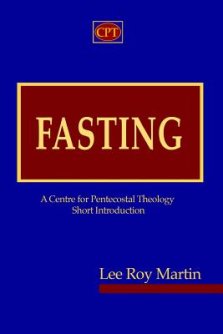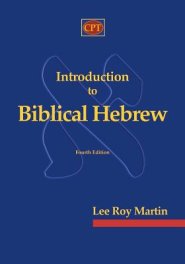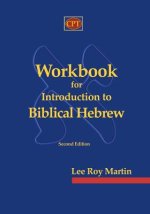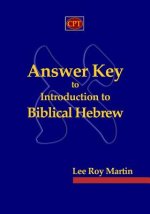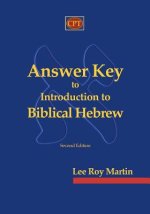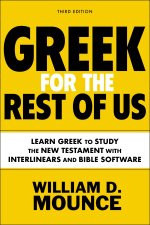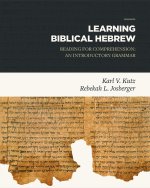NEW 2018 EDITION! This introductory textbook covers the basics of Hebrew grammar, then it leads the student through readings from the Old Testament. The readings review, apply, and supplement earlier material, and insure that the student can enjoy the Hebrew Bible once the course is finished. Written with the learning needs of the student in mind, grammatical rules are kept to a minimum, with more comprehensive lists in the appendices. Features not found in other beginning Hebrew grammars include: 1. A section on verbless clauses; 2. Complete declensions of the prepositions with pronominal suffixes; 3. English translations of verb conjugations; 4. Successive verb conjugations are compared in parallel columns; 5. Description of verb syntax that utilizes recent advances; 6. Appendices describing the Verb Stems, Syntax, Parsing, etc. Also available are a Workbook (ISBN 978-1-935931-76-8) and an Answer Key (ISBN 978-1-935931-75-1.
Unlike other books that seem to be written for linguists and scholars, this one makes reading the Hebrew Bible much easier. Some have criticized it because the lessons do not conform to what is in other books. These differences are not "errors." In fact, they are intentional changes that make learning easier. For example, most grammars lay out the verb conjugations beginning with 3rd person singular ("he"). However, if you have ever studied Spanish, French, Latin, Greek, Italian, German, etc. the verb conjugations begin with 1st person ("I"). This Hebrew textbook follows the more common route of beginning with 1st person, so that your learning process is faster because it conforms to what you experienced in studying other languages. Beginning with 1st person is not an error; and, in fact, it is not unique. Jewish textbooks often begin the verb conjugations with 1st person (for example, Introduction to Hebrew, by Moshe Greenberg; The First Hebrew Primer, by Simon, Resnikoff, and Motzkin; and Biblical Hebrew, by Menahem Mansoor, who taught at the University of Wisconsin). Criticism about introducing sentences before discussing the sign of the definite object is also unfounded. The sign of the definite object is not used consistently throughout the Hebrew Bible. It is found only 25 times in the entire book of Proverbs and only 5 times in the book of Habakkuk. Sentences are often constructed without the sign of the DO. Furthermore, any complaint about "weak" verbs is incorrect, because they are treated thoroughly in lessons 13-18. I definitely would not begin with Lambdin, because he keeps the student using transliterations throughout the whole book. If you rely on transliterations, you will never learn to read the Hebrew Bible. Of course, if you wish to study advanced Hebrew, you will eventually need to use Gesenius, Joüon/Muraoka, Waltke/O'Connor and others.
Trustpilot


